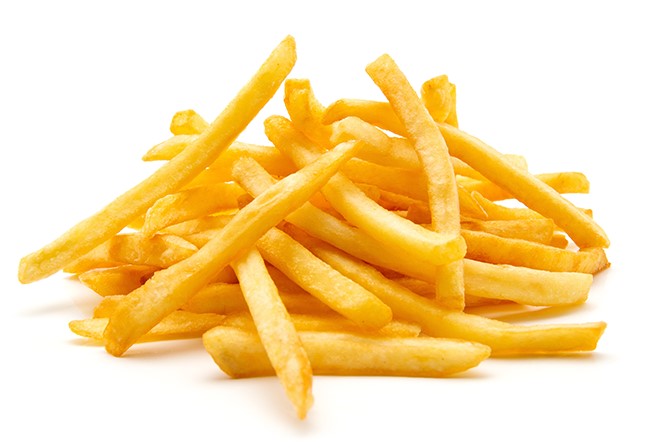A balanced diet is vital during pregnancy and should include a wide range of nutrient-dense foods, such as whole grains, fruits, vegetables, lean proteins, and healthy fats. These food groups provide all the essential vitamins and minerals that are necessary for the healthy development of the baby. It is also important to limit the consumption of processed foods, sugary snacks, and drinks.
Expecting mothers should aim to eat three meals per day and include snacks if needed to meet their calorie requirements. Eating smaller, more frequent meals can help prevent nausea and heartburn, which are common during pregnancy.
Furthermore, drinking plenty of water is crucial for maintaining hydration levels and aiding digestion. Expecting mothers should aim to drink at least eight glasses of water per day.
Protein is essential for the production of new cells and tissues in both the mother and the baby. It is necessary for the growth and development of the baby’s organs, muscles, and other tissues. Pregnant women should aim to consume about 75-100 grams of protein per day.
Plant-based proteins, such as legumes, beans, tofu, nuts, and seeds, are an excellent source of protein and fiber. They help regulate digestion and prevent constipation, which is common during pregnancy. Consider incorporating these plant-based proteins into meals and snacks throughout the day.
Animal-based protein sources, such as fish, poultry, and lean meats, are also important for a balanced diet during pregnancy. They contain essential nutrients like iron, zinc, and choline, which are required for the baby’s growth and development. However, it is important to choose lean cuts of meat and avoid consuming raw or undercooked meat during pregnancy.
Overall, a well-balanced diet that includes a variety of nutrient-dense foods is crucial for the healthy development of the baby during pregnancy. Expecting mothers should focus on eating fresh, whole foods and avoiding processed foods, sugary snacks, and drinks. Consult with a healthcare provider or registered dietitian for personalized nutrition advice during pregnancy.
Balanced Diet
To have a healthy baby, it is crucial for the expecting mother to focus on healthy eating habits during pregnancy. A balanced diet is crucial, as it includes all necessary nutrients required for the baby’s growth and development. It is recommended to consume a variety of fruits, vegetables, whole grains, lean proteins, and healthy fats.
Fruits and vegetables provide essential vitamins, minerals, and fiber which are crucial for the baby’s growth and development. Whole grains are also critical and provide necessary complex carbohydrates, fiber, vitamins, and minerals. Lean proteins are vital for building and repairing tissues and organs, while healthy fats help with brain and nervous system development.
It is essential to avoid consuming processed and sugary foods that provide empty calories without providing any nutritional value. Additionally, it is crucial to drink plenty of water to prevent dehydration and help flush out toxins from the body.
A balanced diet is not only important for the baby’s development but also for the mother’s health during pregnancy. Therefore, it is necessary to consume a balanced diet and to consult with a doctor or nutritionist if there are any concerns.
Protein
During pregnancy, protein is a crucial nutrient for the healthy growth and development of the baby. It is particularly important for the production of new cells and tissues, especially for the growth of organs and muscles. A pregnant woman needs more protein than usual to support both the baby’s development and her own increased blood supply.
Plant-based proteins, such as legumes, beans, tofu, nuts, and seeds, are excellent sources of protein and fiber. They also help regulate digestion and prevent constipation. Animal-based proteins like fish, poultry, and lean meats are important sources of essential nutrients, including iron, zinc, and choline, which are required for the baby’s growth.
It is recommended that pregnant women consume about 75-100 grams of protein per day, depending on their weight and physical activity level. Consuming a variety of protein-rich foods can help meet this requirement. It is important to cook meat and fish thoroughly to avoid the risk of foodborne illnesses.
Overall, consuming enough protein during pregnancy is crucial for the healthy development of the baby and the mother. A balanced diet including a variety of protein sources can ensure that both receive the necessary nutrients for a successful pregnancy.
Plant-based Proteins
Plant-based proteins are a great option for expecting mothers who are looking for alternative sources of protein besides animal products. Legumes, beans, tofu, nuts, and seeds are all excellent sources of plant-based protein that offer a variety of essential nutrients. Plant-based proteins are high in fiber, which helps regulate digestion and prevents constipation. They are also great sources of essential vitamins and minerals, including iron, calcium, and zinc.
When it comes to incorporating plant-based proteins into your diet, there are many delicious and healthy options. For example, legumes like lentils and chickpeas can be used in salads, stews, and soups. Tofu can be marinated and grilled for a tasty and nutritious meal. Nuts and seeds can be eaten as a snack or added to smoothies and baked goods for extra nutrition.
Incorporating plant-based proteins into your diet during pregnancy is not only beneficial for your baby’s health but also for your own health. Plant-based proteins are low in saturated fat and cholesterol, which can help reduce the risk of developing heart disease.
Overall, incorporating plant-based proteins into your pregnancy diet is a great way to ensure that you are getting all the necessary nutrients for a healthy pregnancy. With so many delicious and healthy options, it’s easy to make plant-based proteins a regular part of your diet.
Animal-based Proteins
Animal-based proteins are an essential component of a healthy pregnancy diet. They provide the necessary nutrients required for the baby’s growth and development. Fish, poultry, and lean meats are all excellent sources of animal-based protein. These protein sources contain essential nutrients like iron, zinc, and choline, which are crucial for the baby’s brain and body development.
Iron is necessary for the production of red blood cells, which carry oxygen to the developing fetus. It also helps prevent anemia in the mother. Zinc is necessary for proper immune function, growth, and development. Choline is necessary for brain development and helps prevent neural tube defects.
Consuming animal-based proteins in moderation is necessary for a balanced and healthy diet during pregnancy. However, it’s important to choose lean cuts of meat and cook them thoroughly to avoid the risk of foodborne illness. Pregnant women should also consider the source of their protein to avoid consuming high levels of mercury or other toxins.
In conclusion, animal-based proteins are an integral part of a healthy and balanced pregnancy diet. They contain essential nutrients like iron, zinc, and choline crucial for the baby’s growth and development. However, it’s essential to consume them in moderation and choose lean cuts of meat while also considering the source to avoid any potential risks.
Calcium
Calcium is one of the most important nutrients during pregnancy as it is crucial for the development of strong bones and teeth in the growing baby. It also helps in maintaining the mother’s bone health during pregnancy. Adequate calcium intake during pregnancy is essential for the overall health of the mother and baby.
Dairy products like milk, cheese, and yogurt are excellent sources of calcium, as they contain high amounts of this mineral along with protein and vitamin D. Non-dairy sources of calcium include fortified plant-based milk, leafy greens such as kale, spinach, and broccoli, and nuts and seeds like almonds and chia seeds.
It is recommended that pregnant women consume a minimum of 1000 mg of calcium per day. However, the intake may vary depending on the mother’s age and other factors. Adequate calcium intake can be ensured through a balanced diet or supplements if needed. It is important to talk to your doctor about recommendations for supplements and dosages.
In conclusion, getting enough calcium is crucial during pregnancy for the proper development of the baby’s bones and teeth and for maintaining the mother’s bone health. A balanced diet that includes calcium-rich foods and supplements if needed can help ensure adequate calcium intake.
Dairy
Dairy products are an excellent source of calcium, vitamin D, and protein during pregnancy. Milk, cheese, and yogurt are all great options for meeting these nutritional needs. Additionally, dairy products can help ensure that the developing baby’s bones and teeth grow strong. It is important to choose low-fat or non-fat dairy products to avoid excess saturated fat consumption. If you have trouble digesting lactose, lactose-free dairy products can be a great alternative. It is best to speak with your healthcare provider to determine how much dairy you should be consuming daily for optimal nutrition during pregnancy.
Non-dairy sources
For those who cannot consume dairy due to lactose intolerance or other reasons, non-dairy sources of calcium are crucial during pregnancy. Fortunately, there are many plant-based sources of this essential nutrient. Fortified plant-based milk, such as soy or almond milk, can provide as much calcium as dairy milk. Leafy greens like kale, collard greens, and bok choy are also excellent sources of calcium. Additionally, certain nuts and seeds, such as almonds and sesame seeds, are a good source of calcium. It is important to note that some plant-based sources of calcium can also contain oxalates, which can inhibit the body’s ability to absorb calcium. Therefore, it is important to consume a variety of non-dairy sources of calcium to ensure proper absorption. Consult with your doctor or a registered dietician to ensure you are getting enough calcium in your diet during pregnancy.
Folic Acid
=
Folic acid is a vital nutrient needed for a healthy pregnancy. It helps in the proper development of the baby’s spinal cord and brain, reducing the risk of serious birth defects. Pregnant women are usually advised to consume 400-800mcg of folic acid daily, even before conception.
Leafy greens like spinach, kale, and broccoli are excellent sources of folic acid. Other foods rich in folic acid include citrus fruits, beans, and fortified cereals. If you are having trouble getting enough folic acid through your diet alone, your doctor may recommend taking folic acid supplements.
It is important to note that folic acid intake is crucial during the first trimester of pregnancy when the baby’s neural tube is forming. In some cases, doctors may recommend higher doses of folic acid for women at an increased risk of having a baby with neural tube defects. Always consult your doctor about the recommended folic acid intake for your specific situation.
Leafy Greens
Leafy greens like spinach, kale, and broccoli are some of the best sources of folic acid during pregnancy. These vegetables not only contain high amounts of folic acid but are also packed with other vital nutrients like iron, calcium, and vitamin K. Folic acid is important for the proper development of the baby’s neural tube, which ultimately forms the brain and spinal cord. It also helps prevent serious birth defects.
Including leafy greens in the daily diet is easy and can be done in a variety of ways. They can be used in salads, sandwiches, smoothies, omelets, and soups. One can also blanch and freeze them for use later in pasta or stir-fry dishes. Along with leafy greens, other vegetables like asparagus, brussels sprouts, and legumes like lentils and beans are also good sources of folic acid.
In some cases, supplements may be required to meet the daily folic acid requirements, especially during the early stages of pregnancy. However, it is essential to consult with a healthcare provider before starting any supplementation. Too much folic acid can also be harmful and lead to adverse effects. Therefore, it is crucial to get the right amount of folic acid from natural sources and supplements under medical supervision.
Supplements
During pregnancy, it is essential to have proper levels of nutrients in the body for the health of both the mother and the developing baby. Folic acid is one of the most critical nutrients during pregnancy, as it helps prevent serious birth defects. While leafy greens like spinach, kale, and broccoli are excellent sources of folic acid, supplements may be necessary to ensure adequate intake, especially in the early stages of pregnancy.
Talk to your doctor about recommendations for supplements, as they can provide guidance on the appropriate dosage and brand. It is essential to choose a reputable brand and to follow the recommended dosage to avoid any adverse effects.
In addition to supplements, it is also important to focus on a balanced diet rich in various nutrients. A healthy diet that includes fruits, vegetables, whole grains, lean proteins, and healthy fats can help provide all the necessary vitamins and minerals required for the baby’s growth and development. Remember to also stay hydrated and avoid processed foods and excessive amounts of caffeine and alcohol.
By prioritizing proper nutrition and consulting with a healthcare provider for recommendations on supplements, expecting mothers can help ensure the health and wellbeing of themselves and their developing babies.









